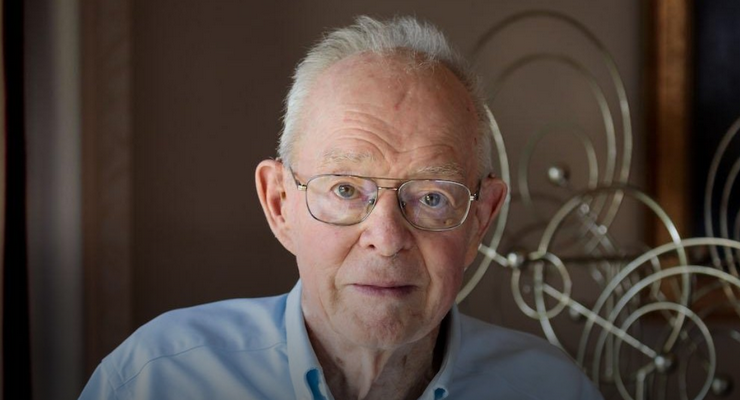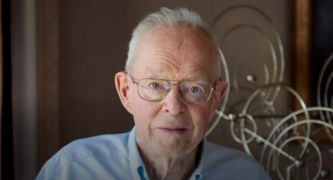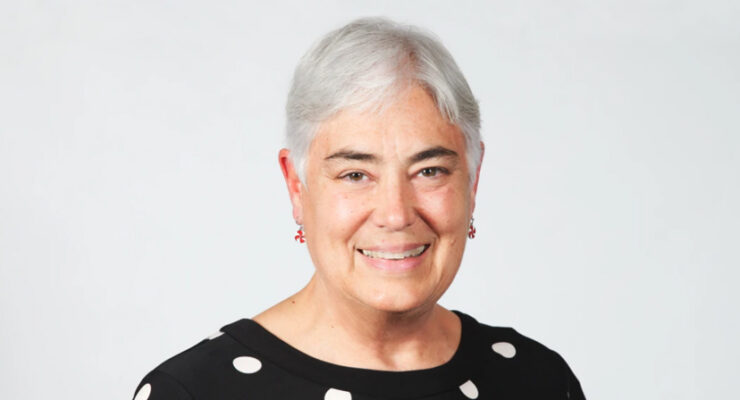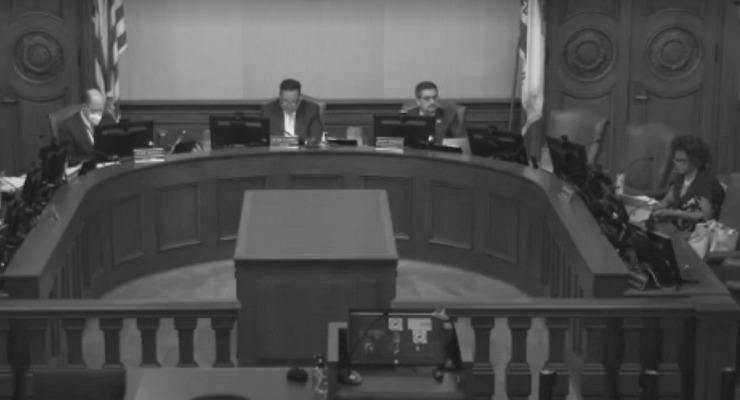
Caltech Distinguished Alumnus Eugene Parker (PhD ’51) passed away on March 15 at age 94. Parker was a pioneer in the field of heliophysics, the study of the sun and how it affects Earth, the planets in our solar system, and space beyond. In 1958, Parker correctly predicted the existence of the solar wind, a flow of charged particles that stream off our sun at speeds faster than sound.
Parker’s contributions to our understanding of the solar wind were so profound that NASA named its Parker Solar Probe, a mission currently traveling around the sun, in his honor. The mission was the first NASA had named after a living scientist. Parker, along with three generations of his family, watched the mission launch into space from Cape Canaveral in 2018.
Caltech’s Ed Stone, the David Morrisroe Professor of Physics and the longtime project scientist for NASA’s Voyager mission, worked across the hall from Parker in the early 1960s at the University of Chicago. He remembers when Parker predicted the existence of solar wind.
“Many of his colleagues thought he must be wrong, but when Mariner 2 was on the trip to Venus in 1962, it revealed that a supersonic wind was always present,” said Stone in a Caltech article from 2018.
Stone said Parker also correctly predicted the solar wind would create a large bubble around the sun, now called the heliosphere.
“In 2012, Voyager 1 finally left the bubble first predicted by Parker, entering interstellar space,” Stone said.
Parker was born in 1927 in Houghton, Michigan. He earned his undergraduate degree in physics from Michigan State University in 1948, and his PhD from Caltech in 1951. In 1955, he became a faculty member at the University of Chicago, where he spent the rest of his career.
In addition to his work on the solar wind, Parker unraveled the physics behind magnetic fields in space as well as the dynamics of space plasma, among other astrophysical discoveries. He was the recipient of numerous awards, including the National Medal of Science, the Kyoto Prize, the Crafoord Prize, the American Physical Society Medal for Exceptional Achievement in Research, and the society’s James Clerk Maxwell Prize for Plasma Physics.
An obituary posted by the University of Chicago quotes advice Parker once gave to early-career scientists:
“If you do something new or innovative, expect trouble,” he said. “But think critically about it because if you’re wrong, you want to be the first one to know that.”
Read the full obituary from the University of Chicago.














 0 comments
0 comments


